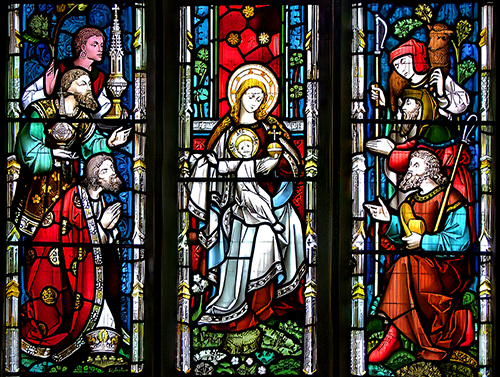
Two Gospels, St Luke and St Matthew, tell the ‘story’ of the birth of Jesus.
When we look closely at the two stories, we notice they have peculiarities to each.
St Luke’s gospel has shepherds and no wise men; St Matthew’s gospel has wise men and no shepherds.
However, both the shepherds and the wise men are important to our story of the in-breaking of God into our world in the person of Jesus; the Word made flesh.
The shepherds were Jews.
The wise men (or Magi) were non-Jews, or Gentiles.
The shepherds were ‘locals’.
The Magi were foreigners.
The shepherds were of meagre means.
The Magi had sufficient wealth to travel and to offer gifts.
The word epiphany means a manifestation or revelation.
Literally, ‘a drawing back of the veil.’ Something like the opening of theatre curtains.
On this day the veil is drawn back on a great mystery, namely, that Christ is the Saviour of all people.
Today is the feast of inclusivity.
It is God’s will that all people be saved and come to the knowledge of the truth.
God invites all to share on equal footing the benefits of the saving actions of Christ.
This feast shows that election by God is not a privilege for some, rather a hope for all.
It puts an end to every kind of exclusiveness.
In Jesus own mission he reached out to those excluded by the society in which he lived, the poor, the diseased, women and children.
He reached out to Samaritans, Canaanites, foreigners, and every manner of social outcast.
He angered the Jewish leaders by telling them that the Kingdom of God was open to everyone.
The news that the Gentiles would be accepted on equal terms as themselves caused shock and bewilderment to the Jewish leaders.
This great and wonderful truth was revealed in embryo when the Magi came to honour the Christ child.
Are all welcome, as equals, in our Church, irrespective of race, gender, age, sexual preference, ability or disability? If not, why not? Is the barrier not in them; rather, might it be in me?
Towards the conclusion of Matthew’s gospel, Jesus is in discussion with the chief priests and elders, and they are questioning his authority.
The discussion concludes with these words of Jesus, “Truly I tell you, the tax collectors and prostitutes are going into the kingdom of God ahead of you. For John came to you, in accordance with God’s covenant plan, and you didn’t believe him – but the tax collectors and prostitutes believed him. But when you saw it, you didn’t think better of it afterwards and believe him. “ (Mt. 21: 31-32)
I have just had this terrible possibility for real inclusivity. Millions of dollars are being spent on the restoration of the Christchurch Cathedral by the Anglican community. Similarly, millions of dollars are being prepared to be spent on building a new Cathedral by the Roman Catholic community. What say, they (whoever they are) got together and made the restoration of the Christchurch cathedral the combined project!
Imagine the million of dollars saved and available for use to house the homeless, build shelters for those abused, etc.
In the church of All Saints, Easton, Suffolk, UK there is a 14th-century-stained glass window that has both the shepherds and the Magi in common adoration together.
